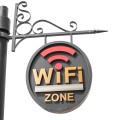
Most consider home Internet service a necessity in today’s economy and society, but most low-income families can’t afford it.
While most users take easy access to the Internet for granted, many low-income families still can’t afford it. This despite the fact that access has become practically a necessity.
In fact, Federal Communications Commission Chairman Tom Wheeler has said that only 48 percent of households with incomes of less than $25,000 a year can afford home Internet service. And lack of regular Internet access can make school, work and other everyday activities — including looking for work — much more difficult.
“Internet access has become a prerequisite for full participation in our economy and our society, but nearly one in five Americans is still not benefiting from the opportunities made possible by the most powerful and pervasive platform in history,” wrote Wheeler, with FCC Commissioner Mignon Clyburn, in a March 8 blog post.
Now the FCC has taken a step toward narrowing the Internet gap, proposing a subsidy of $9.25 per month for low-income households.
FCC commissioners will vote on the proposal on March 31. Most observers expect it to pass.
The proposal is an extension the $2 billion Lifeline program that provides low-income families with subsidies for phone service. Lifeline began in 1985, and was expanded in 2008 to include mobile phones.
You Might Also Enjoy: Survey: Smartphones Beat Out Paid TV and Internet Service Providers
The new Lifeline proposal includes further measures to guard against fraud. It suggests appointing a third party to vet individuals for eligibility and to make sure companies are following rules. (Lifeline participants have traditionally been vetted by the companies that provide mobile service.) The FCC will also make data on the program publicly available.
The goals of the proposal have wide support. As long ago as 2010, a worldwide poll found that four out of five adult Internet users believed that Internet access was a right, not a privilege. And the New York Times has noted that some low-income children stay on school buses for hours every day, using the Wi-Fi on the bus to complete their homework.
However, there have been some noted abuses of the Lifeline subsidies. Some families have received subsidies for both land and mobile lines, which is not allowed. The new proposal includes measures to clamp down on abuses of the system. The FCC has introduced measures to limit abuses in the past, especially in 2012 when it created a database to track abusers. Still, in 2015, a Government Accounting Office study questioned the effectiveness of Lifeline.
While critics of the plan acknowledge the worthiness of its goal, they say that its expense (about $750 million) is extreme and will merely reduce, not eliminate, the Internet gap. They say the new plan will exacerbate the waste and fraud that has been part of the Lifeline program and lead to higher phone bills for all Americans.
Supporters cite the need for low income families to have access to the Internet for school, job searches and health information.





